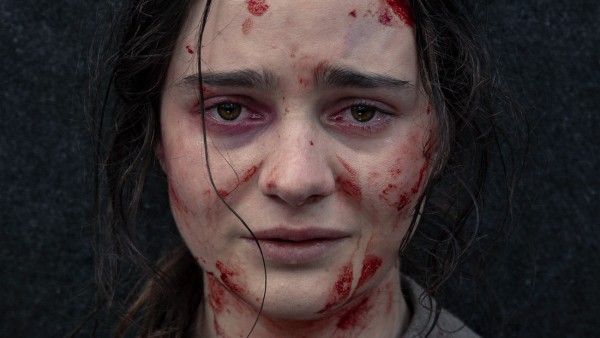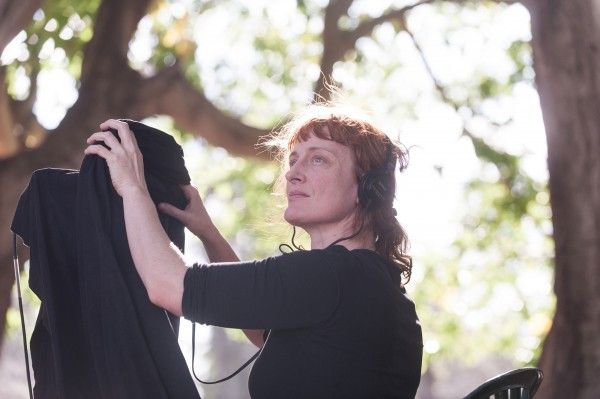Jennifer Kent quickly skyrocketed to being one of my favorite filmmakers in the industry after her feature directorial debut The Babadook, and now I’m thrilled to tell you that that title stands after having seeing her second film, The Nightingale. And also after getting the opportunity to talk to Kent about making that film and her priorities as a director in general.
As one can imagine, The Babadook opened doors for Kent and those doors could have led to studio level projects and big paychecks, but Kent opted to go for something that’s quite challenging and not necessarily a crowdpleaser, The Nightingale. The movie takes place in Tasmania in the 1820s when a young Irish convict named Clare (Aisling Franciosi) loses everything at the hands of a British officer played by Sam Claflin. Their nightmarish encounters motivate Clare to seek revenge, even if it means walking into the multitude of threats of the wilderness with only an Aboriginal tracker named Billy (Baykali Ganambarr) by her side.
As I already mentioned, I caught The Nightingale at the 2019 Sundance Film Festival and it’s wildly impressive. You can check out my full review of the film by clicking here, but right now it’s time to put the spotlight on Kent herself, her journey from The Babadook to The Nightingale, her thoughts on the criticism of the violence depicted in the film, and loads more. You can listen to it all using the audio embed below. And if you’d like, there’s a full breakdown of the conversation at the bottom of this article.
Jennifer Kent:
- Kent recalls the journey from The Babadook to The Nightingale, and why she chose to do something so different.
- Kent discusses the many, many production challenges during The Nightingale.
- She needs to do films that are her, and at this point in time, the studio big budget films aren’t her.
- Given the challenging subject matter, was it tough to get The Nightingale a green light?
- The stars aligned for Kent during the shoot weather-wise.
- Kent highlights her leads - Aisling Franciosi and Baykali Ganambarr.
- Given the intense material, what did Kent do as a director to make her actors feel safe and comfortable on set?
- Kent addresses the criticism of the violence in The Nightingale.
- Why reunite with IFC to distribute this film?
- Kent compares the reaction of Australian viewers to the reaction of viewers from other parts of the world.
- Kent teases her next films.



